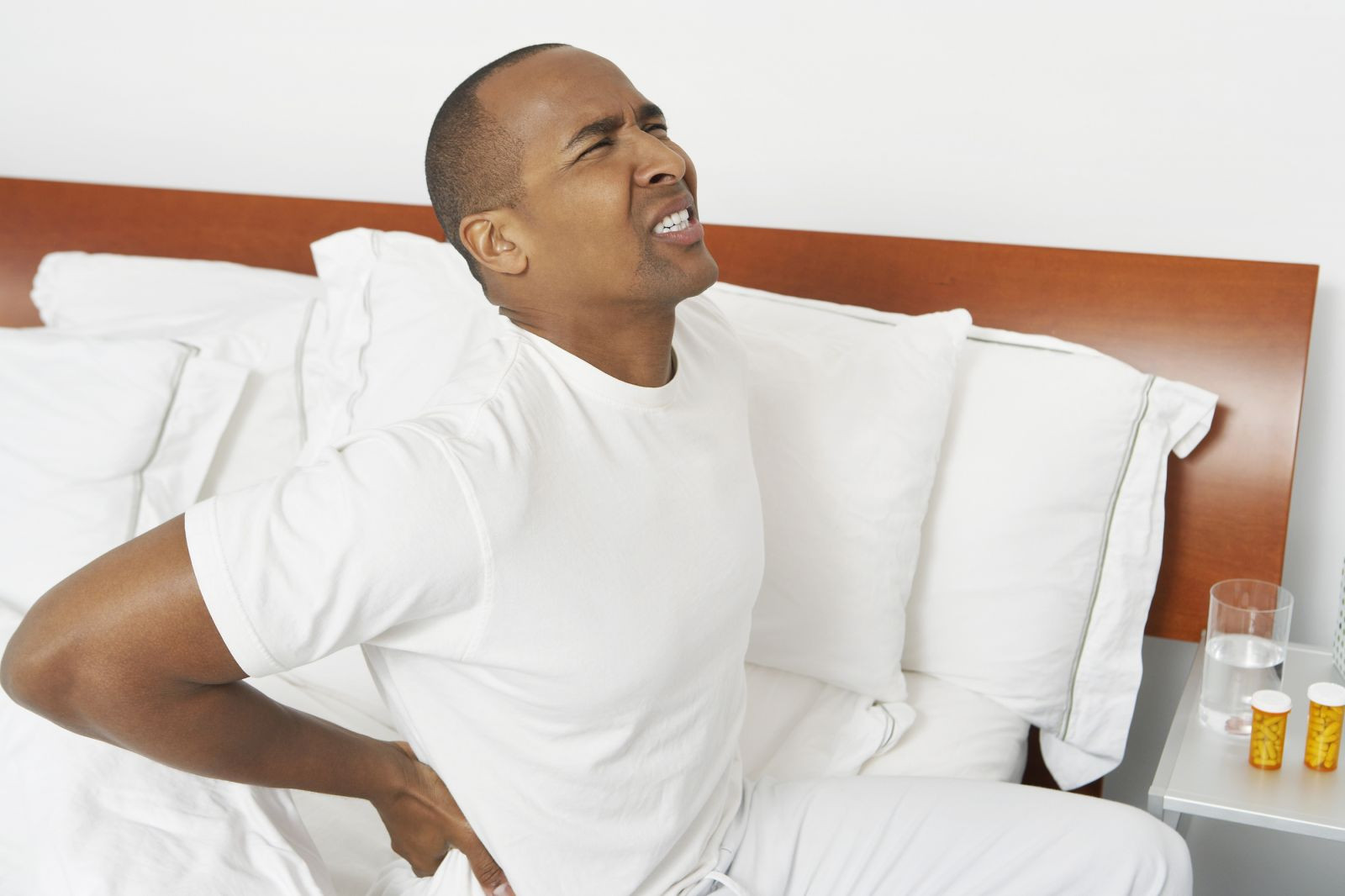What makes my joints stiff in the morning?
Ask the doctor

Image: Bigstock
Q. Why are my joints so stiff when I wake up? Is there anything I can do about it?
A. Stiffness in the back, knees, or feet is a common complaint I hear from older individuals. People often say, "I'm just getting old," but old age alone does not cause morning joint stiffness. It is usually an indication of worn joints, muscle tightness, or inflammation from arthritis.
As your joints get older, the spongy cushion of cartilage begins to dry out and stiffen. The joint lining also produces less synovial fluid, which lubricates the joint. Weak muscles and stiff tendons also tend to tighten during sleep. Osteoarthritis, (the "wear and tear" kind), and rheumatoid arthritis, (which involves swelling and inflammation), both can trigger morning stiffness.
The average episode lasts only about 10 to 15 minutes. The stiffness goes away as you move and warm up the joints and muscles. However, stiffness from rheumatoid arthritis may last more than an hour.
You cannot reverse the effects of joint aging, and while certain medications can help manage arthritis pain and inflammation, stiffness can still occur. Still, you can reduce the severity and frequency of morning joint stiffness by being more active and engaging in exercise to increase muscle strength and flexibility. Maintaining a healthy weight also can help. Finally, don't be swayed by joint health supplements, such as glucosamine or chondroitin. These do not appear to help manage symptoms in the long term.
—William Kormos, M.D.
Editor in Chief, Harvard Men's Health Watch
Disclaimer:
As a service to our readers, Harvard Health Publishing provides access to our library of archived content. Please note the date of last review or update on all articles.
No content on this site, regardless of date, should ever be used as a substitute for direct medical advice from your doctor or other qualified clinician.












